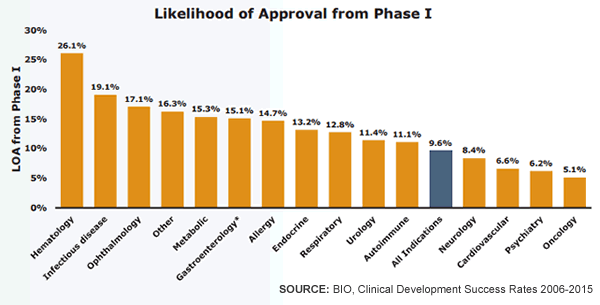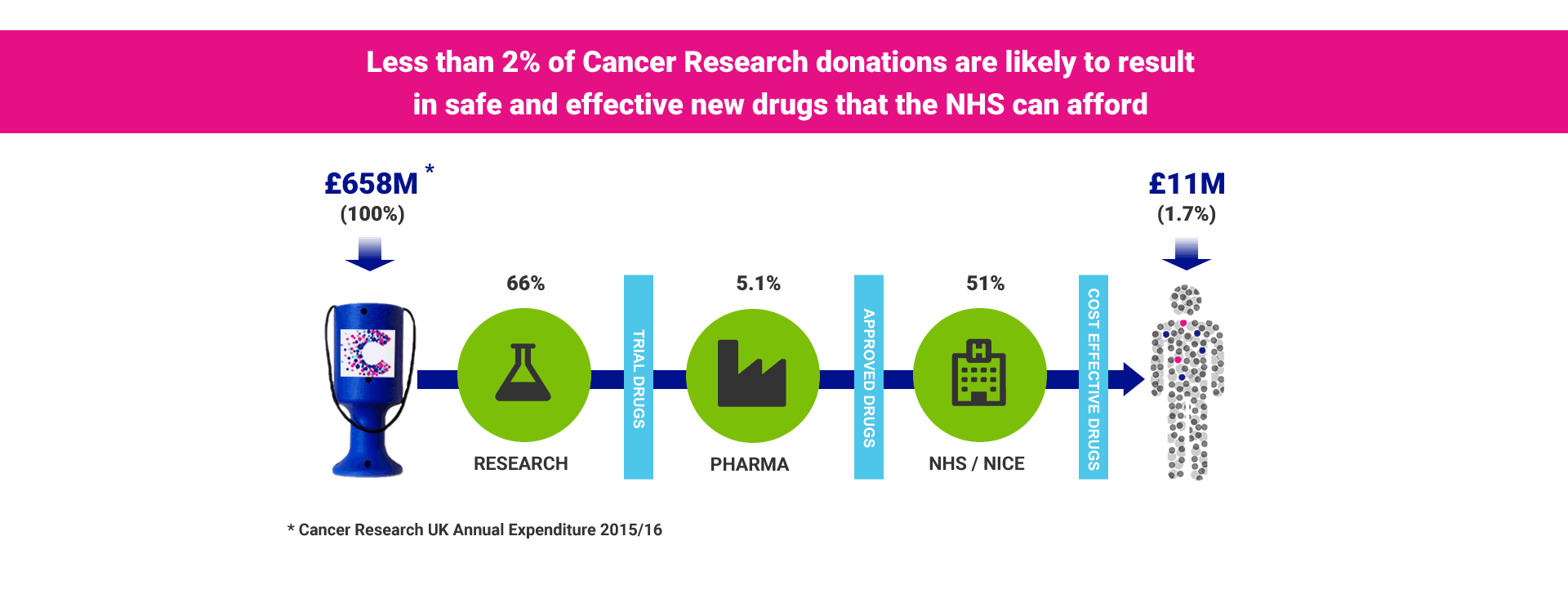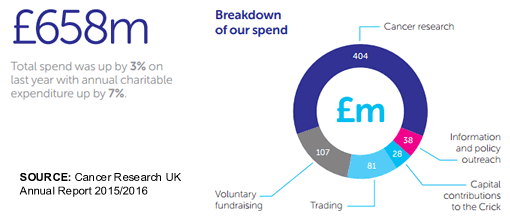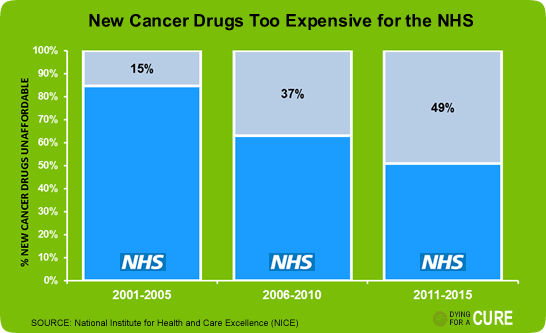Is Cancer Research Money Well Spent?
When we give money to cancer research charities like Cancer Research UK we expect that money to be used efficiently to help discover and develop new treatments that will actually benefit patients, many of whom are friends and relatives. It is therefore shocking to discover that less than 2% of the money given to Cancer Research UK is likely to be spent on developing new treatments that can be offered routinely on the NHS.
How can that be?
Well, here’s what happens to the money we give.
How Much Goes on Research?
Every year Cancer Research UK raises around £650m, mostly from public donations. However, according to its annual report, just 61% of last year’s total expenditure of £658m was spent on carrying out cancer research. This increases to 66% if you include contributions towards the cost of building a new research lab. The remainder was spent on other activities like fundraising and overheads, including over £1m on salaries for the top five highest paid employees!
Nevertheless, this still represents 66% of the money we give, which is then used to develop new and improved treatments that could benefit patients.
How Much Research Works?
much of this money is spent pursuing dead-ends
However, it turns out that much of this money is spent pursuing dead-ends, as the vast majority of promising new treatments discovered in laboratories fail when tested in real patients. In May 2016 a report was published from the largest ever study of clinical development success rates, which found that only 5.1% of promising new cancer treatments pass clinical trials. While it is natural that all research involves a degree of failure, a 95% failure rate does seem rather high and is notably less than half of the success rate of promising new medicines for most other illnesses.

So, 66% of the money we give for cancer research is spent on research but only 5.1% of this 66% is likely to be spent on developing a drug that works!
Nevertheless, this still means that 3.4% of the money we give (66% x 5.1%) is being spent on developing new and improved treatments that could potentially benefit patients.
How Affordable Are New Drugs from Cancer Research?
However, even if a new drug passes clinical trials to confirm that it is safe and effective to offer to patients, this doesn’t mean that it can be offered to patients on the NHS. The NHS has a limited budget and the Government allows pharmaceutical companies to charge whatever price they like for new drugs, so many drugs are simply too expensive. Sometimes a discount can be agreed but drug companies would rather forgo revenues from the UK market than create downward pressure on prices internationally by agreeing large discounts.
Analysis of the new cancer drug approvals by NICE, the organisation that assesses the affordability of new drugs, shows that between 2011 and 2015 only 51% of new cancer drugs were deemed affordable enough for routine use by the NHS. And drug affordability has been declining over the last 15 years.
So, 66% of the money we give for cancer research is spent on research, only 5.1% of this 66% is likely to be spent on developing a drug that works and only 51% of these drugs that work are affordable for routine use by the NHS!
Putting It All Together
So, let’s do the maths (66% x 5.1% x 51%)…that means that just 1.7% of the money we pump into this enormous cancer research machine is likely to be spent on researching a new drug that will benefit NHS cancer patients.
Now maybe you feel that that represents good value for money but I’m angry that we see so little benefit for the money we give. Obviously any progress is better than none, but to me this feels like a shocking waste and indicates that we have a Research and Development (R&D) system that is hugely inefficient.
this is a systemic failure not a failure of human intentionsI have no doubt that every individual involved in this end to end process is working hard and they should all be commended for doing the best they can within such poor constraints, but this is a systemic failure not a failure of human intentions.
Encouraged by World Cancer Day on 4 February, people are being asked to dig deeper than ever to raise increasing amounts of money for cancer research, in an act of unity, but we can’t keep blindly pouring money into a bucket with a big hole in the bottom! We all want to see the day when we no longer live in fear of cancer but the R&D system needs fixing or that day will be far further off than it needs to be.
The Dying for a Cure campaign is calling for a major overhaul of the way we develop cancer drugs, to ensure that investment in R&D in channelled where it is likely to have most benefit for patients not shareholders and that new medicines are affordable for widespread use.
Please help by signing our petition.



